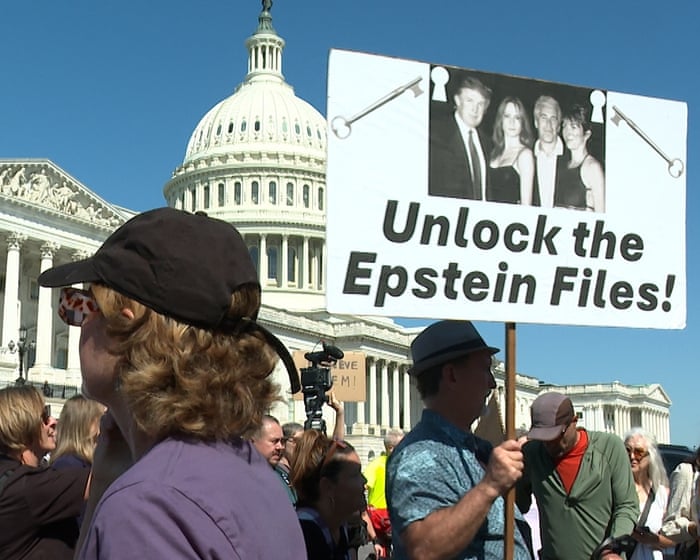Rape is fundamentally an attack on democracy because it violates the principle of equality and the idea that every person has basic, unbreakable rights. Rapists often believe they can overpower their victims not just physically, but socially and legally as well. They rely on a system that too often ignores victims, silencing them through shame, threats, or legal tools like nondisclosure agreements. This system has historically been shaped by men, often at the expense of women and children. In short, rapists expect to get away with their crimes because the system gives them power and takes it away from their victims. They depend on a culture of silence and deep inequality.
This is what makes rape such a distinct crime: it is a deliberate display of the perpetrator’s power and the victim’s powerlessness, reinforced by social conditions that keep both in those roles. It uses sexuality to inflict physical and emotional harm, to dominate, and to treat another person as if they have no rights—including the right to say no or speak out afterward. A society that allows and protects this dynamic is what we call rape culture, and it has been a persistent part of our history for far too long.
Democracy, in this sense, means a society where everyone’s rights are respected, everyone has a voice, and everyone is equal under the law. Rapists assume this isn’t true, but thanks to feminism, progress has been made over the last 50 years, with even greater changes in the last decade. There is now more equality in how the legal system treats victims, from police to judges and juries—who are no longer all male. While there is still a long way to go, these shifts have enabled over a hundred survivors of Jeffrey Epstein’s abuse to come together, supported by lawmakers from both parties, to share their stories and demand justice.
These survivors became victims because of the extreme power imbalance between Epstein and the young women and girls he targeted. His power came not only from his vast, unexplained wealth, but from the help of others. Some, like Ghislaine Maxwell, actively participated in grooming and abusing them, while others knew what was happening and chose to protect Epstein and his associates—some even continuing to do so at the highest levels.
For example, House Speaker Mike Johnson recently adjourned Congress to avoid votes on measures related to Epstein, a move seen as protecting Donald Trump. As reported, Johnson’s priority is shielding Trump, and he is not alone in this effort. In July, Jamie Raskin pointed out that a massive operation involving a thousand FBI agents was tasked with reviewing Epstein documents and flagging any mention of Trump, suggesting a widespread cover-up. U.S. Attorney General Pam Bondi reportedly ordered this censorship campaign, raising serious questions about what is being hidden and why Trump requires such undemocratic protection.The system protects itself. Like Johnson and Todd Blanche, the deputy attorney general who conducted a long, misguidedly gentle interview with Maxwell, it serves one man rather than the 342 million people of this country. Trump himself, who over the summer seemed frightened and eager to distract from questions about his involvement, once again tried to silence victims by dismissing the whole matter as “a Democrat hoax” right after the press conference. Survivor Haley Robson challenged him, saying: “I cordially invite you to the Capitol to meet me in person so you can understand this is not a hoax.”
The women who spoke at Wednesday’s press conference made it clear they still fear threats and that efforts to silence them continue. Katie Tarrant of the Washington Post reported that Lisa Phillips, a victim of Jeffrey Epstein, and her lawyer Brad Edwards said victims are afraid to speak publicly about other abusers for fear of legal action. This came in response to a question about a list of clients some victims are said to be compiling. Another Post journalist noted that Anouska De Georgiou, who identified herself as an Epstein victim, said she and her daughter were threatened when she volunteered to be a witness in a lawsuit against Ghislaine Maxwell.
This pattern of suppressing the truth and silencing victims fits with the broader actions of the Republican party and the Trump administration. Attacks on immigrants, refugees, people of color, women, and trans people, along with the administration’s positioning itself above the law with help from conservative Supreme Court justices, are attempts to roll back not only recent democratic progress but the foundational principles of universal rights and equality under the law embedded in the Constitution and the Bill of Rights.
Reducing women to second-class—or even lower—status is central to the current right-wing agenda. This includes criminalizing pregnancy, denying reproductive rights like access to birth control and abortion, and withholding care from women who miscarry or need to end a pregnancy. But the attack on women doesn’t stop there. The administration has disproportionately fired Black women from government jobs; 300,000 Black women have left or been forced out of the workforce in the last three months.
Pete Hegseth, who settled a rape allegation out of court, has fired women from high-ranking military positions, claimed women are less qualified than men, and shared videos from religious extremists arguing women shouldn’t have the right to vote. Trump’s administration is effectively pro-crime, diverting federal resources from pursuing criminals to persecuting immigrants, often breaking the law in the process. It has tried to cut funding for programs addressing domestic violence. And of course, the administration is led by Donald Trump—a man a judge found it “substantially true” had raped journalist E. Jean Carroll. It’s rapists all the way down, and enablers all the way up.
Rebecca Solnit is a Guardian US columnist and the author of “Orwell’s Roses.” She co-edited the climate anthology “Not Too Late: Changing the Climate Story from Despair to Possibility” with Thelma Young Lutunatabua.
Frequently Asked Questions
Of course Here is a list of FAQs about Rebecca Solnits article The Jeffrey Epstein coverup is a disgrace to American democracy written in a natural conversational tone
General Understanding
Q Who is Rebecca Solnit and why is she writing about this
A She is a wellknown author and essayist who often writes about feminism power and social justice Shes writing about this because its a powerful example of how the rich and powerful can evade justice
Q What is the main point of her article
A The main point is that the Epstein case isnt just about one criminal its about a whole system that protected him because of his wealth and powerful connections which undermines the principle that everyone is equal under the law
Q What does she mean by a disgrace to American democracy
A She means that democracy is supposed to be based on justice and equality When the system clearly works differently for the ultrawealthy and connected it betrays those core democratic ideals and makes a mockery of justice
About the CoverUp
Q What coverup is she referring to
A Shes referring to the way Epsteins crimes were downplayed for years This includes his incredibly lenient plea deal in 2008 where he served only 13 months in a private jail with work release and the initial reluctance of powerful institutions to thoroughly investigate his network
Q Who does she suggest was involved in the coverup
A While not naming every individual she implicates a system that includes corrupt officials highpowered lawyers and a network of wealthy and influential associates who either participated looked the other way or used their power to suppress investigation
Q Is she just talking about Epstein himself
A No thats a key point She argues the real scandal is the network and ecosystem around himthe powerful people who enabled his abuse and the system that failed to hold them accountable
Deeper Implications
Q How does this case connect to bigger issues in society



